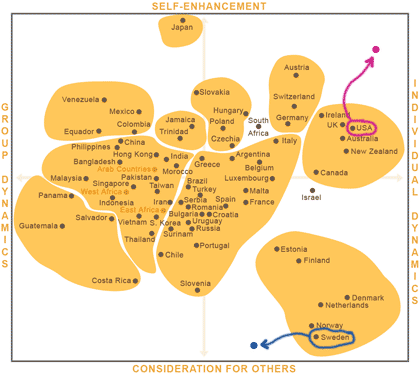
 |
 |
 |
 |
 |
 |
 |
Addressing Cultural issues in the work place
A large, long established petroleum company headquartered in Dallas, Texas has grown considerably over the years, in a pure "Texan way", taking extensive risks over new mining fields, vertical integration and acquisitions. The industry, particularly in Texas, is a tough "men's world" populated by some very strong personalities, which are highly results oriented and display powerful commanding styles of leadership. Such a man has managed the company for the last decade, strongly impacting on the culture of the top team and the whole organisation. But with a CEO about to retire and plans for business expansion in Europe, the board decided to appoint a new leader. The man, a Swedish national, brings considerable experience of the European market: he has held a leading position in the top team of a large Dutch petroleum company for the last 15 years.
However, the transition to the new CEO proved difficult. "It is just not right!" says No 2, "This man simply does not have what it takes to lead this company". It was only after long discussions with members of the top team that the roots of these criticisms were found. The former directors could not cope with this new management style described as "too soft and lacking drive and vision".

On his side, the new CEO acknowledged experiencing similar communication problems with his team. Where before, he used to closely work with his fellow managers, always trying to find the best solutions by confronting different approaches in a participative way; he could not comprehend the "childish and immature" behaviour of his new team which seemed to "constantly seek guidance and await for orders" in virtually all matters.
With the help of the SPM, SPM Online partners discovered a strong difference in personalities and management styles between the two CEOs, further increased by their different cultural backgrounds (represented by the green and red dots on the map). Where the Swedish CEO saw empowerment, delegation and participation, managers saw weakness and indecision. It was only through training about individual and cultural differences, highlighting the need for different, complementary skills and the respect of diversity that the new CEO and his top team understood and reconciled their differences to finally establish stronger and positive work relationships.

